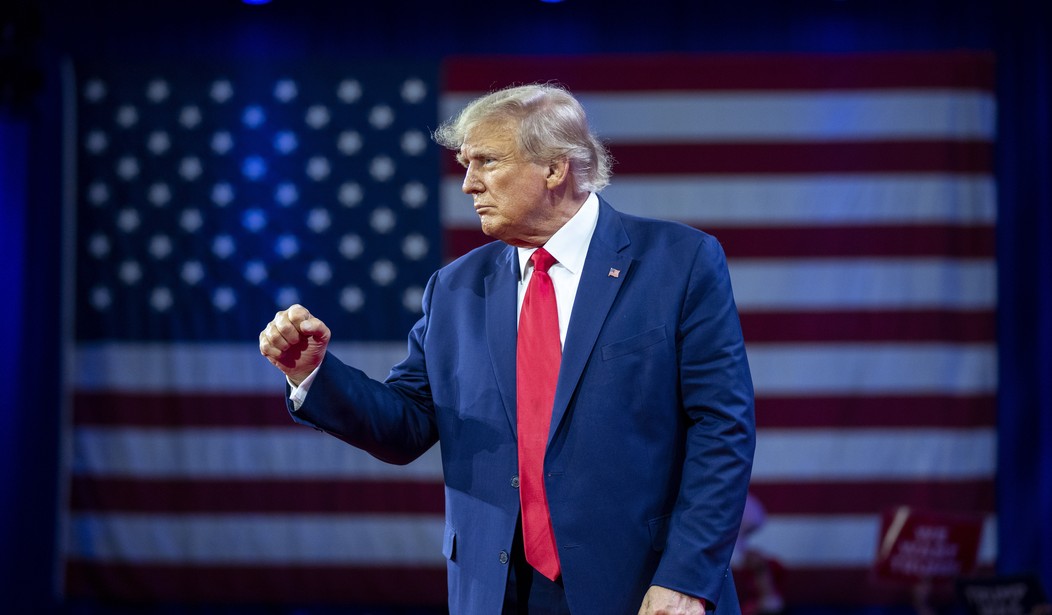In recent years, union membership has seen a significant decline, dropping to 10% in 2023 from 20.1% in 1983, with private sector membership at an all-time low of 6%. Despite this, the media continues to sensationalize isolated union victories, often portraying them as signs of a broader movement toward worker empowerment. However, the reality is far more complex. Unionization today often imposes economic and social burdens on workers, and if President Trump wants to garner the union vote, he should focus on supporting the laborers themselves rather than the union bosses who oppose common-sense mergers and deals.
The merger between U.S. Steel and Nippon Steel promises to bring significant economic and union worker benefits. Combining resources, technology, and expertise from both companies will lead to increased productivity, better-quality products, and a stronger market position. This collaboration is poised to create a more resilient and adaptable industry, capable of meeting the demands of a modern economy. The merger is expected to drive down production costs, making U.S. steel more competitive against foreign imports and securing jobs for American workers.
However, union leaders often stand in opposition to such mergers, fearing the loss of control and influence. Their resistance is rooted in protecting their power rather than the well-being of the workers they represent. This shortsightedness overlooks the long-term benefits that mergers can bring, such as job security through a stronger, more competitive company. By opposing necessary changes, union leaders risk sacrificing the future of the very workers they aim to protect.
Notably, even Vice President Kamala Harris has recently faced a decline in union support, reflecting a growing disconnect between union leadership and the workers they claim to represent. Harris's challenges signal a shift in the labor landscape, where workers are increasingly seeking advocates who prioritize their interests over entrenched union politics. This shift underscores the need for leaders who are willing to challenge the status quo and genuinely support laborers' needs.
Recommended
If President Trump wants to win the union vote, he must stand with the laborers themselves rather than the union bosses who often oppose deals that benefit the workers. Supporting the U.S. Steel and Nippon Steel merger is an opportunity to advocate for laborers' real needs—competitive pay, professional development, and workplace innovation—without the constraints of union interference. This merger aligns with the economic realities workers face, offering a path to job stability and industry growth. It empowers industry leaders to make strategic decisions that ensure the longevity and competitiveness of American steel.
By aligning with the laborers, Trump can position himself as a true champion of the working class, highlighting the inefficiencies and financial burdens imposed by unions. This approach not only addresses the immediate concerns of workers but also paves the way for a more flexible, efficient, and responsive labor market. The path to genuine progress and a stronger, more resilient economy lies in supporting the workers directly, rather than pandering to union bosses who prioritize political gain over the well-being of their members.
President Trump's outreach to union workers should be characterized by his commitment to reviving the manufacturing sector and renegotiating trade deals, which directly benefit the American workforce, including those in unions. His policies aim to bolster industries where union workers are heavily employed, thereby promising to enhance job security and wages for these workers. By advocating for policies that restrict imports and encourage domestic production, Trump can effectively tap into union concerns about job outsourcing and the influx of cheap foreign goods, making a strong case for why his administration is the better choice for those dependent on manufacturing jobs.
Trump's aggressive stance on deregulation has already won favor among many union workers who see regulatory frameworks as a barrier to efficiency and profitability in their trades. His approach promises a more robust economy where industries such as steel, auto manufacturing, and construction can prosper without excessive governmental oversight, ideally leading to more jobs and higher wages for union members.
Trump also emphasizes the disparity between union leadership and the rank-and-file members, arguing that union bosses are often more aligned with broader political agendas than with the interests of their members. By doing so, he appeals to those within the unions who feel overlooked by their leaders, presenting himself as a true advocate for their welfare. His support for significant mergers and industrial growth would further showcase his commitment to ensuring the long-term viability of blue-collar jobs, thus reinforcing his appeal to union workers who seek real, impactful change in their industries.
The proposed merger between U.S. Steel and Nippon Steel is a necessary step toward revitalizing the U.S. steel industry. It promises to create a more competitive, innovative, and resilient industry capable of securing jobs and economic growth. President Trump must stand with the laborers and industry leaders who understand the best use of their resources, rather than adhering to the restrictive and often self-serving agendas of union bosses. This merger is not just about business; it is about securing a prosperous future for American workers and ensuring the steel industry remains a vital part of our economy.

























Join the conversation as a VIP Member